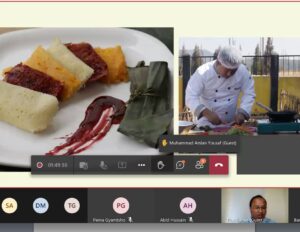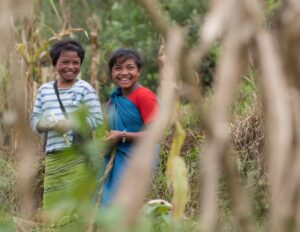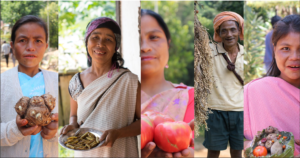Sowing the seeds for the future of Indigenous Peoples’ Food Systems:The Community Seed Bank in Mulum, West Jaintia Hills, acts as a model village in safeguarding indigenous seed varieties.
Before the intervention of SURE and NESFAS, farmers of the Mulum community in West Jaintia Hills preserved their seeds in the traditional method that had been practised since the olden days – the seeds were either kept hanging above the fireplace or wrapped in a cloth and kept near the fireplace. But as much as the traditional way of preserving seeds was effective and efficient, stored grain pests and moisture often damaged these seeds during preservation.
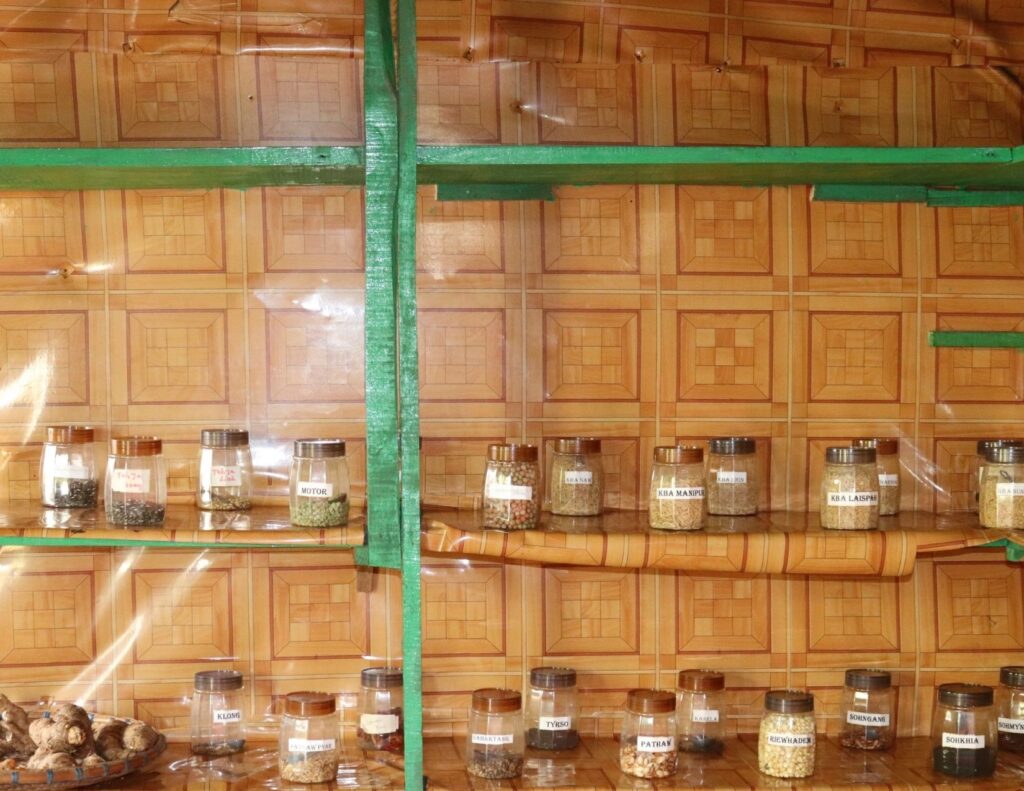
The solution to this problem for Mulum Community came in the form of a Community Seed Bank in the year 2019. With a view to safeguard and preserve indigenous seeds, promote seed exchange among communities, and encourage sustainable use of local varieties of seeds, the Iaraplang local group as part of the Participatory Guarantee System set up the CSB. This initiative was facilitated by SURE and NESFAS with the support of REC under the ‘No One Shall Be Left Behind’ initiative. Ever since, the Mulum Community Seed Bank hasn’t taken the foot off the gas in the fight to preserve and promote indigenous varieties of seeds.
Today, the members of the Mulum community collect the seeds from the fields, dry them in the sun and then keep the seeds in airtight containers at the CSB. The Seed Bank at Mulum which started off with around 37 varieties of indigenous seeds now stores and preserves 57 different varieties. Apart from acting as a preservative for seeds, the CSB also offers a space for the exchange of knowledge on how to preserve seeds that are endangered.
During the planting season, the CSB supplies seeds to the community members and other farmers, thereby propagating the values of Indigenous Food and Seed Systems. After the harvest, the community members restock the CSB with the best produce of the season. As well as preserving and propagating the traditional seed varieties found in the community, the Mulum community also reaches out to other communities for other varieties of Indigenous seeds that aren’t available in the community.
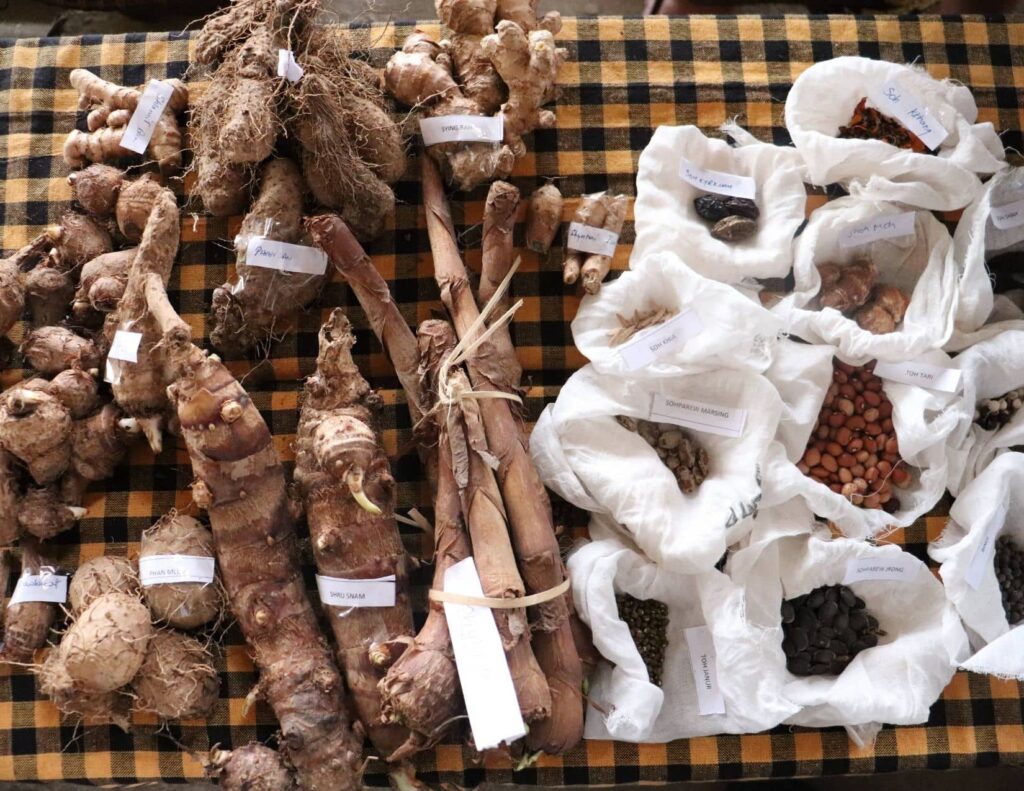
Ms. Kitborlang Suchiang, an ALC member of the Mulum community stressed that in order to preserve traditional farming methods, traditional seeds that have been passed down from custodian farmers need to be planted and taken care of. She also stressed the need to take the initiative of going about natural pest management practices: “I urge my fellow women farmers to bring change through their little innovations and to try to avoid the use of chemicals as much as possible.” Kitborlang added.
This prosperity of the Mulum CSB is something Ms. Kristian Suchiang and Ms. Riviancy Suchiang, both members of the Mulum ALC take huge pride and happiness in. “I am delighted with this initiative (CSB) whereby we are able to enhance and preserve more of the local seeds in order that we can share and distribute with other communities as well”, said Kristian. Riviancy Suchiang, also expressed her wish to preserve more local seeds in the CSB so that they can share these indigenous seeds with other communities.
Farmers and members of visiting communities have revelled in the wholesome experience of the seed exchange visits hosted by the Mulum Community. Withnald Sangma, ALC member of Darechikgre Community from West Garo Hills expressed that being part of the Seed Exchange visit was a ‘boon’ for his community. “I got the opportunity to exchange seeds that weren’t available in my community and the community members highly appreciated the unique seeds that I brought home from the visit. These seeds will surely help us improve our crop diversity in the future.” Withnald shared.
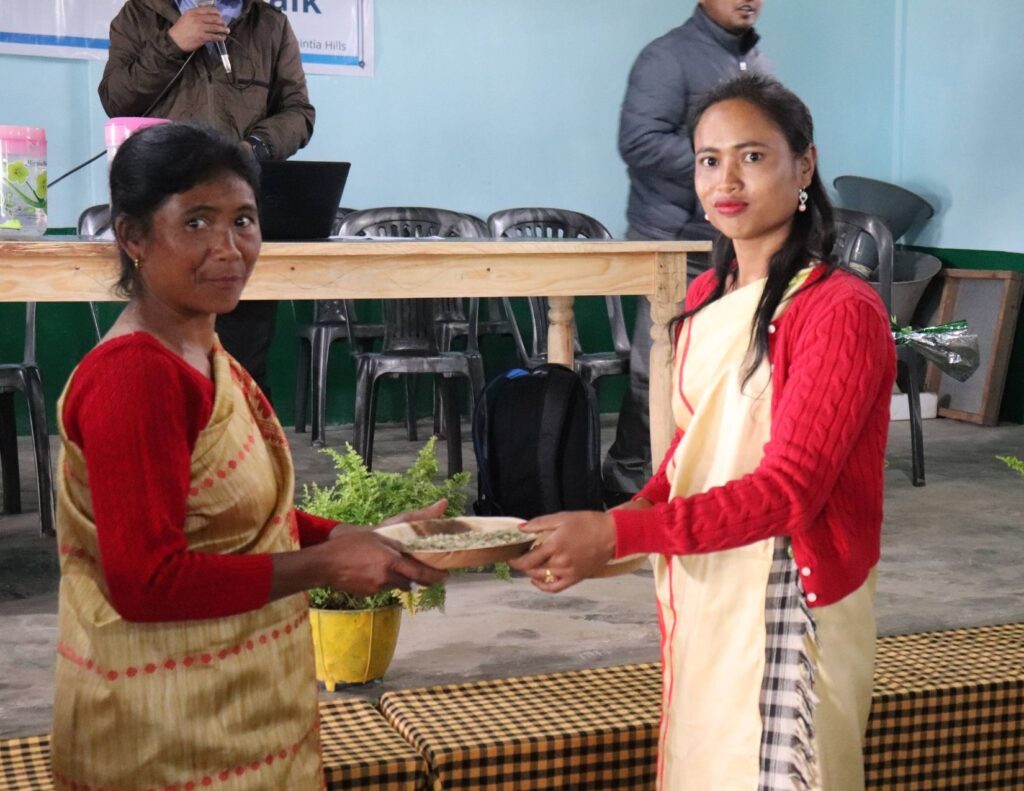
Tunila Marak, member of Daribokgre Community Seed Bank, East Garo Hills expressed that the seed exchange visits have shown her importance of a community producing and consuming their own food. She added that traditional seed preservation and production of locally and organically grown food are the need of the hour in order to combat the health problems that plague society from the consumption of adulterated food.
Apart from merely exchanging seeds, the seed exchange visits also provide a platform for farmers from different communities to come together and exchange knowledge on farming and seed preservation. Communities that wish to set up their own seed banks have also come to learn about the initiation process and practices that go into running a CSB from the Mulum Community.
The small Mulum community that was introduced to Community Seed Bank in 2019 now acts as a model village in preserving and producing traditional/indigenous seed varieties. Slowly, but surely, the influence of the inspiring Mulum community is taking seed in the other communities as the collective effort to safeguard and promote indigenous varieties of crops takes root one seed and one community at a time.

